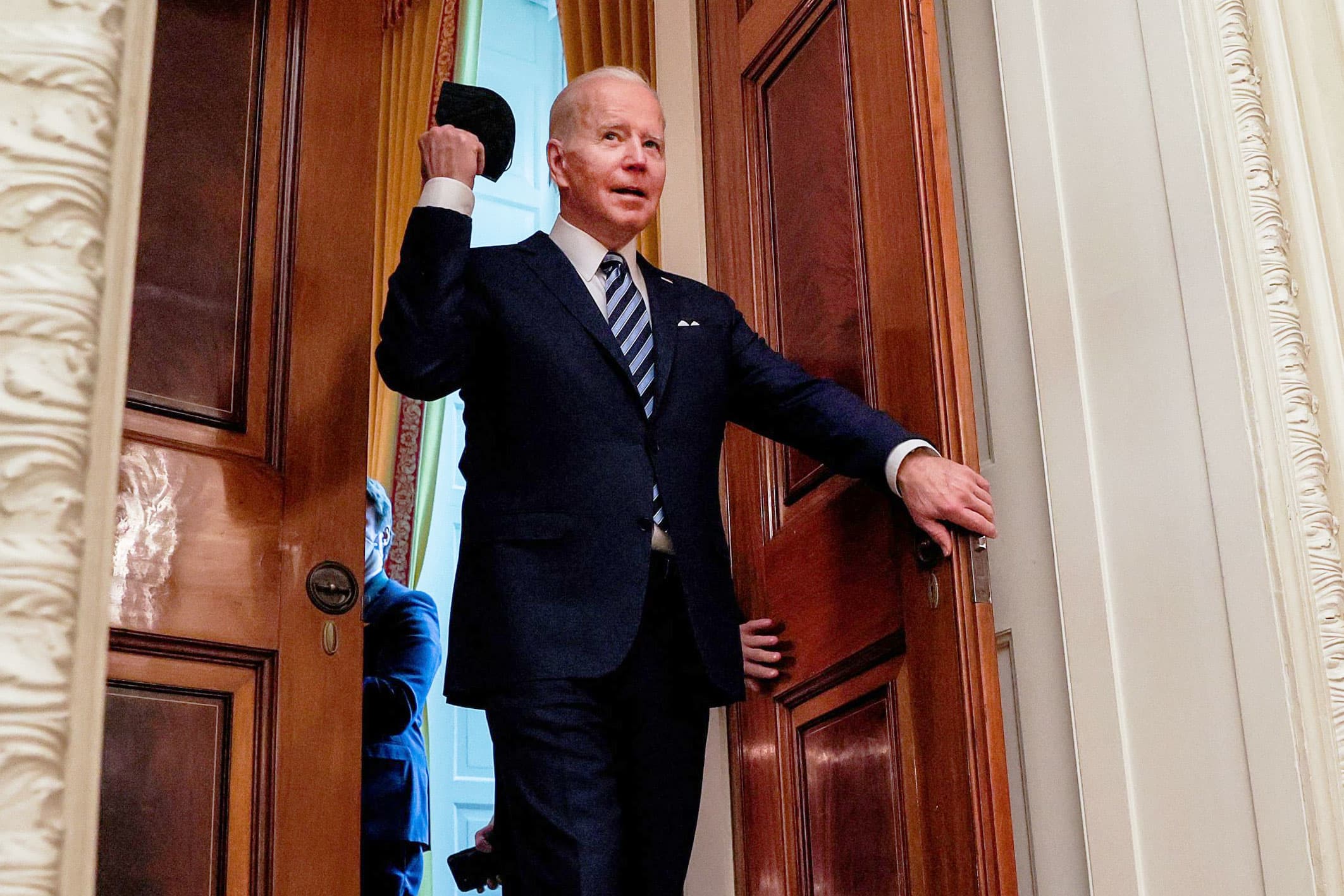
U.S. President Joe Biden arrives to deliver remarks on the January jobs report in the State Dining Room at the White House in Washington, February 4, 2022.
Leah Millis | Reuters
WASHINGTON — The U.S. economy has finally broken free of the sharp ups and downs of Covid, President Joe Biden said Friday, citing January’s unexpectedly big jobs gains.
The president also cited upward revisions to November and December’s employment data that show the economy remained strong throughout a dramatic spike in Covid cases.
“Our country is taking everything that Covid has to throw at us, and we’ve come back stronger,” Biden said in remarks at the White House.
Nonfarm payrolls climbed by 467,000 for the month, while the unemployment rate edged higher to 4%, according to the Bureau of Labor Statistics. The larger-than-expected gain came a week after the White House warned that the numbers could be low due to the pandemic.
Along with the big upside surprise for January, huge revisions sent previous months considerably higher.
December, which initially was reported as a gain of 199,000, went up to 510,000. November surged to 647,000 from the previously reported 249,000. For the two months alone, the initial counts were revised up by 709,000.
Those changes brought the 2021 total to 6.665 million, easily the biggest single-year gain in U.S. history as employers hired back workers they dismissed during the worst of the pandemic.
“If you can’t remember another year when so many people went to work in this country, there’s a reason,” said Biden. “It never happened.”
Taken together, the combined January numbers and previous two months’ revisions suggest that the record-breaking omicron wave did not have nearly the same impact on the economy as the delta wave of Covid did last summer and fall.
For January, the biggest employment gains came in leisure and hospitality, which saw 151,000 hires, 108,000 of which came from bars and restaurants. This is further evidence that omicron, which is more contagious but generally results in milder sickness than other Covid strains, didn’t keep people from going out to crowded indoor venues.
By contrast, last August the National Restaurant Association found that nearly one in five Americans stopped going to restaurants as delta variant cases rose.
Wages also jumped in January as average hourly earnings for workers across the economy climbed 0.7% over the month and 5.7% over the last year, both the fastest rates since 2020. The White House has in recent months heralded wage gains as evidence of better bargaining power among workers and proof that corporate boards are moving toward fairer employee compensation.
Some economists and Wall Street traders say they’re keeping a close eye on wage statistics as a potential leading indicator of inflation. Labor is almost always the No. 1 cost facing corporations, so higher wages could lead to steeper retail prices across the economy if firms look to offset the pay burden.
The wage and jobs numbers are also further support for the Federal Reserve’s plan to begin raising interest rates and continue pulling back on Covid-era easy-money policies. The central bank is widely expected to start a cycle of interest rate hikes beginning in March that could eventually raise the cost of auto and home loans.
— CNBC’s Jeff Cox contributed reporting to this story.




